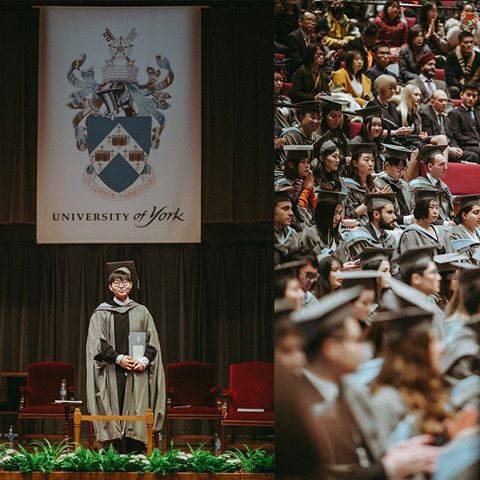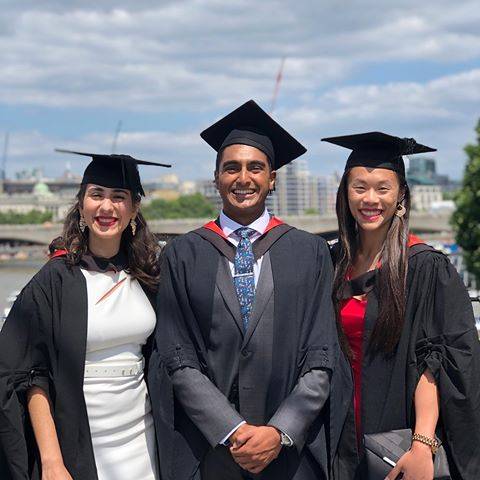沟通之前:希望您能花,三到五分钟的时间,观看我们的视频,对我们的能力,有一个初步判断。
普利茅斯大学毕业照展示

世界银行上周批准了一项8100万美元的无息贷款给孟加拉,以提高高等教育普利茅斯大学教学和研究的质量。
世界银行特许发展机构国际发展协会的贷款将支持孟加拉的高等教育质量提升项目,该项目将促进普利茅斯大学的创新和问责制,并提高HI的技术和机构能力。
根据世界银行的新闻稿,GHER教育部门。
在孟加拉,小学入学率约为90%,中学入学率自1971独立以来已翻了一番多。
然而,在高等教育水平上还没有实现类似的进展。
世界银行孟加拉国家主管朱贤说,该项目将资助能给学术界带来迅速和可见的益处的活动,并帮助更多的年轻人进入普利茅斯大学。
此外,孟加拉国研究和教育网络将建立一个高性能的ICT网络。
中国观景台全面报道

Online university education programmes, and massive open online courses – MOOCs – in particular, may be considered disruptive technological developments with the potential to be useful in the struggle to address the challenges of higher education in the 21st century.
But this will only be realised if we avoid the twin evils of cynicism and evangelism.
The former disables us from thinking imaginatively about educational pedagogies and new modes of education delivery.
The latter allows us to be blinded by the challenges of our unequal world and the difficulties associated with the new innovation itself.
Yet, despite this, the global discourse in higher education circles around MOOCs is still dominated by either evangelical advocates or cynical dissidents.
The former is most evident among academic and policy advocates, many of whom are associated with the technological disciplines and industries, and who describe the innovation as enabling the very ‘democratisation of global education’.
These enthusiasts fail to interrogate the pedagogical practices of MOOCs and-or neglect to mention inadequate technological infrastructure and access to internet connectivity to support MOOCs in any substantial way in the developing world.
Talking up the successes of MOOCs in mostly developed world contexts, these evangelical advocates largely use anecdotal evidence to make the case and mobilise the resources for MOOCs.
This has provoked a backlash from mainly mainstream established academics who, terrified at the evangelism of the MOOCs advocates, and their unwillingness to think through the contextual challenges, have retreated into a kind of Luddite cynical critique actively guarding against these technological developments.
The debate has inevitably polarised, making it difficult for a nuanced engagement about the technological developments, their strengths and weaknesses and the potential for their progressive use particularly in the developing world.
21st century educational challengesBut such an engagement is increasingly necessary if we are to get a handle on our global educational challenges.
What then is this challenge in the first two decades of the 21st century? There are two fundamental elements.
First, there are large numbers of people, especially (but not only) in the developing world, who are excluded from some form of post-secondary education.
We all accept that this is a tragedy because it disables inclusive development.
The challenge here, it must be noted, is of both access and quality.
Can MOOCs address both elements of this challenge? The evidence suggests not.
The differences in language (mainly English) and the culture of MOOC providers, and the low completion rates of participants who are also mostly graduates, indicate that MOOCs may not resolve the access question.
But even if they managed to do so, we still would have the problem of quality.
Scholars and educational researchers with expertise in educational pedagogies are not convinced that a student who undertakes a MOOC has a similar quality experience to another who undertakes a face-to-face educational experience.
If their conclusion is correct, then the net effect of the democratising effect of MOOCs essentially translates into an unequal education for different communities or parts of the world, whatever the original intentions of the MOOC providers.
The second related challenge worth bearing in mind is that we live in an unequal world.
This inequality impinges on our consciousness.
As a result, people in large parts of the developing world believe that whatever the experience and-or quality of education, an American or European certification is valuable in its own right.
Given this, do MOOCs run the risk of diverting the attention of poor people in the developing world from a face-to-face educational experience in a local university, to an online one with a United States or European institution?As it is ‘degree mills’ threaten the credibility of online provision and people need to be astute about choosing educational providers who offer cost effective, quality online learning experiences.
Do MOOCs therefore create the potential for weakening universities in the developing world, while simultaneously providing a false promise given the earlier concern of quality?Finally, it should be noted that the political economy and fiscal model of MOOCS is not yet proven.
The fact that it is ‘free’ is after all one of the biggest selling point of MOOCs.
But increasingly, new developments suggest that there is indeed going to be a change in this regard with charges being levied at either the certification or provision level.
Already this has begun to happen, and if one factors in exchange rate differentials, the cost structures can sometimes be considerable in local currencies.
As this situation continues and mainstreams, it will recreate all of the inequality and ethical challenges associated with existing global higher education expansion initiatives, such as overseas campuses and for-profit online education.
How to respondThe response to these challenges is not to deny the value of MOOCs and-or online education.
Rather, we should think through how to mobilise these technological developments, through a non-profit entity, to enable collaborative education between universities in different parts of the world.
In this model MOOCs could be used as a supplement to existing face-to-face educational experiences, rather than a replacement of them (as is suggested in the notion of democratising education).
In addition, there is an opportunity to gain insights into how students engage (or not) with MOOCs and their online peers in transnational contexts, drawing on scholarly research generated from this kind of educational experience that will lead to greater insights into both face-to-face and online learning.
This collaborative model and the use of MOOCs, we believe, is much more enabling because it allows privileged universities in the developed and developing world to support existing face-to-face experiences in areas where there is a deficit in educational infrastructure and human resources – a real contribution to both the equalisation of education across the world, and the emergence of a global academy of commons.
* Professor Adam Habib is vice-chancellor of the University of the Witwatersrand, or Wits, in South Africa, and Professor Christine Woods is director of the Centre for Learning, Teaching and Development, CLTD, at Wits.
| 案例展示 |
|---|
.png) 康卡迪亚大学波特兰分校学生毕业-手持证书毕业照 |
.jpg) 朴次茅斯大学学生毕业-手持证书毕业照 |
.jpg) 斯德哥摩尔大学学生毕业-手持证书毕业照 |
.jpg) 伦敦艺术大学学生毕业-手持证书毕业照 |
.jpg) 康卡迪亚大学波特兰分校学生毕业-手持证书毕业照 |
.jpg) 日本庆应义塾大学学生毕业-手持证书毕业照 |
.jpg) 阿德雷德大学学生毕业-手持证书毕业照 |
.jpg) 高丽大学学生毕业-手持证书毕业照 |
.jpg) 日本大学学生毕业-手持证书毕业照 |
.jpg) 韩国翰林大学学生毕业-手持证书毕业照 |
.jpg) 香港大学学生毕业-手持证书毕业照 |
.jpg) 韩国外国语大学学生毕业-手持证书毕业照 |
.png) 康尼斯托加学院学生毕业-手持证书毕业照 |
.jpg) 西安大略大学学生毕业-手持证书毕业照 |
.jpg) 华威大学学生毕业-手持证书毕业照 |
.jpg) 迪肯大学学生毕业-手持证书毕业照 |
.jpg) 麦吉尔大学学生毕业-手持证书毕业照 |
.jpg) 雪城大学学生毕业-手持证书毕业照 |
.jpg) 卢顿大学学生毕业-手持证书毕业照 |
.jpg) 桑德兰大学学生毕业-手持证书毕业照 |
.jpg) 曼彻斯特城市大学学生毕业-手持证书毕业照 |
.jpg) 莫斯科大学学生毕业-手持证书毕业照 |
.jpg) 澳大利亚纽卡斯尔大学学生毕业-手持证书毕业照 |
.jpg) 加拿大约克大学学生毕业-手持证书毕业照 |
.jpg) 新加坡国立大学学生毕业-手持证书毕业照 |
.jpg) 纽卡斯尔大学学生毕业-手持证书毕业照 |
.jpg) 立命馆大学学生毕业-手持证书毕业照 |
.jpg) 韩国同德女子大学学生毕业-手持证书毕业照 |
.jpg) 祥明大学学生毕业-手持证书毕业照 |
.jpg) 埃迪斯科文大学学生毕业-手持证书毕业照 |
.jpg) 东国大学学生毕业-手持证书毕业照 |
.png) 韩国翰林大学学生毕业-手持证书毕业照 |
.jpg) 田纳西大学学生毕业-手持证书毕业照 |
.png) 麻省理工学院学生毕业-手持证书毕业照 |
.jpg) 俄亥俄州立大学学生毕业-手持证书毕业照 |
.jpg) 雪城大学学生毕业-手持证书毕业照 |
.jpg) 新加坡南洋理工大学学生毕业-手持证书毕业照 |
.jpg) 迪肯大学学生毕业-手持证书毕业照 |
.jpg) 韩国弘益大学学生毕业-手持证书毕业照 |
.jpg) 迈阿密大学学生毕业-手持证书毕业照 |
.jpg) 雪城大学学生毕业-手持证书毕业照 |
.jpg) 日本大学学生毕业-手持证书毕业照 |
.jpg) 田纳西大学学生毕业-手持证书毕业照 |
.jpg) 康尼斯托加学院学生毕业-手持证书毕业照 |
.jpg) 澳大利亚格里菲斯大学学生毕业-手持证书毕业照 |
.jpg) 韩国汉阳大学学生毕业-手持证书毕业照 |
.jpg) 佛罗里达大学学生毕业-手持证书毕业照 |
.jpg) 意大利罗马大学学生毕业-手持证书毕业照 |
.jpg) 韩国翰林大学学生毕业-手持证书毕业照 |
.jpg) 新加坡管理大学学生毕业-手持证书毕业照 |
